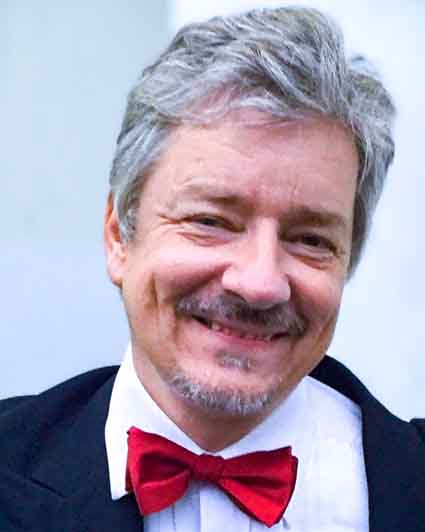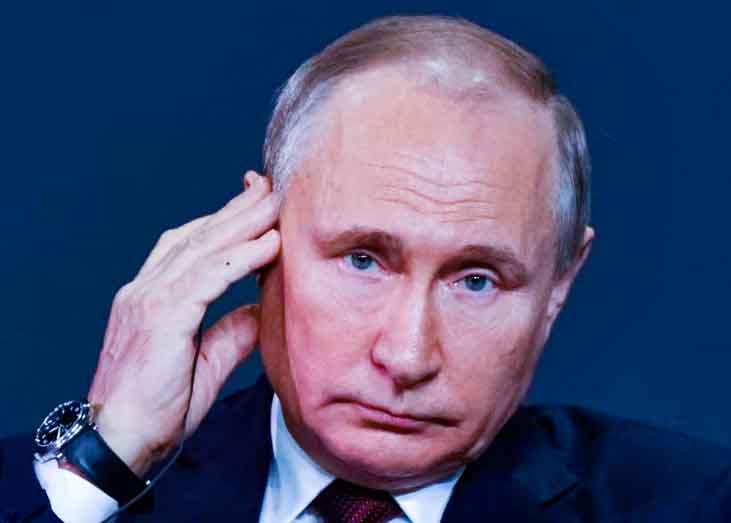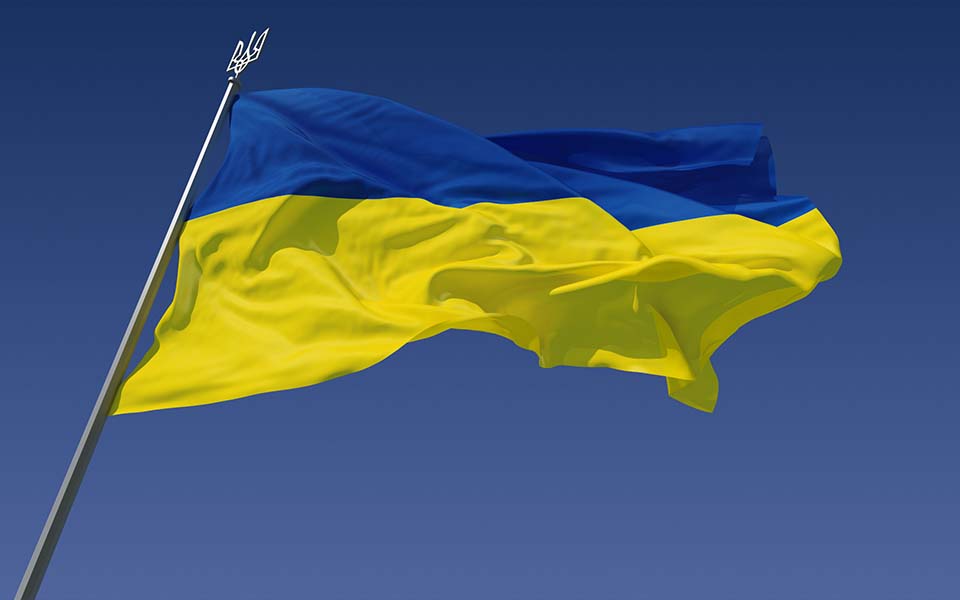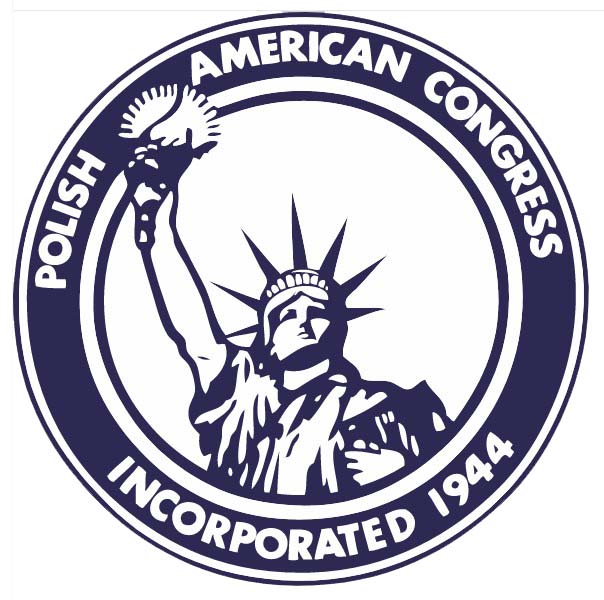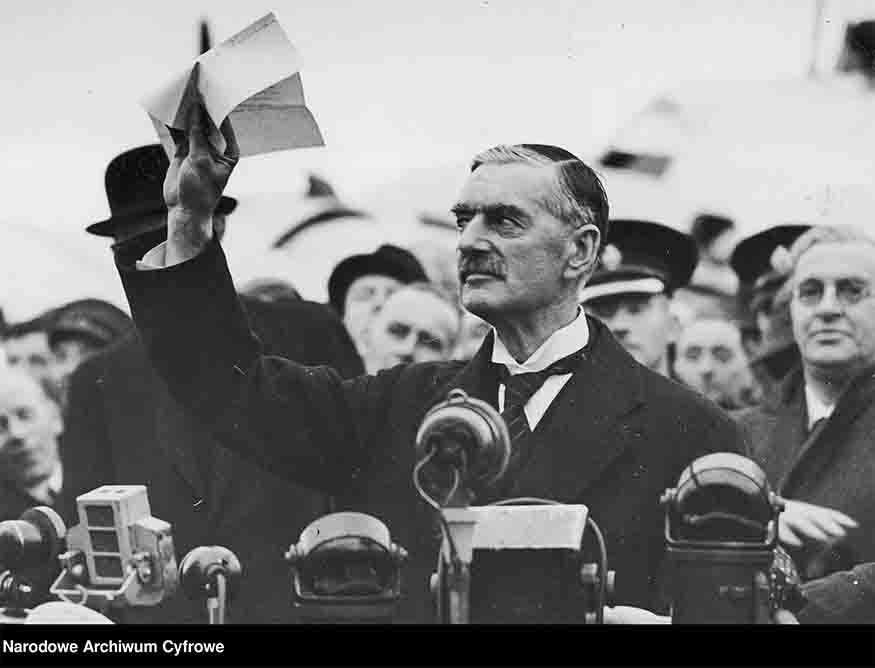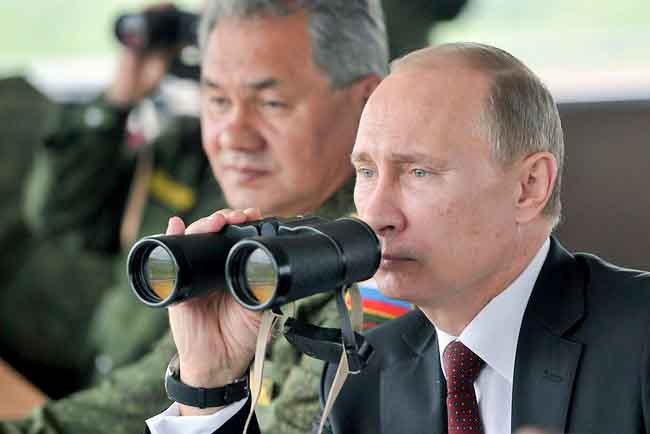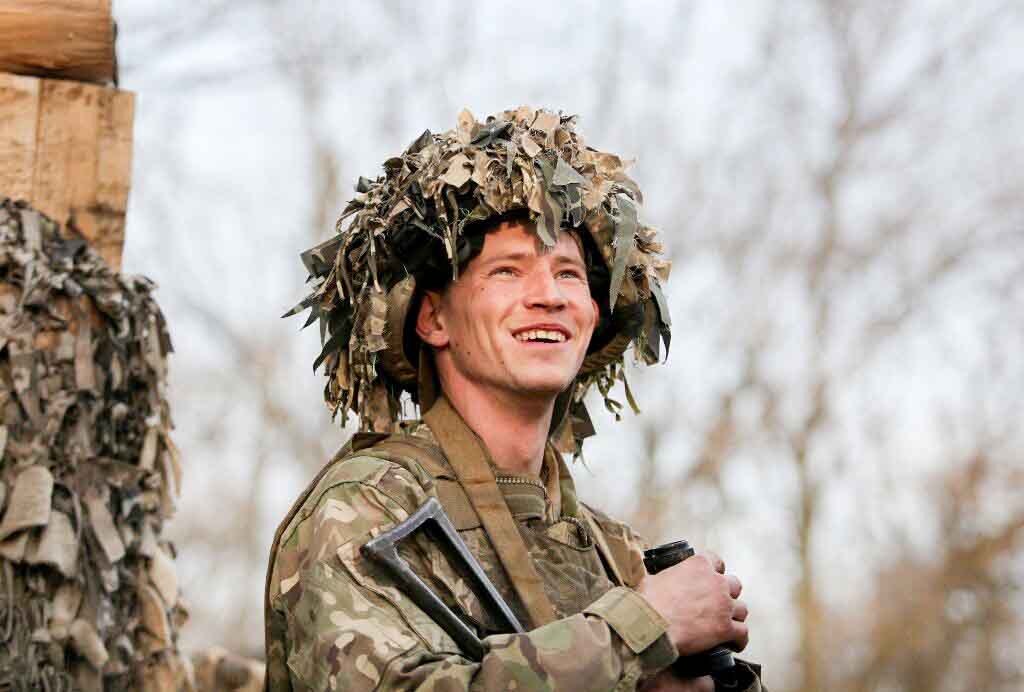The XXIV Winter Olympics concluded in Beijing yesterday. Poland did not achieve any great success in them, although the Americans did. The games, however, were shaken by a variety of scandals — but this is not what we would like to write about today. It is no coincidence, we argue, that, like clockwork, just after the games are finished, things are starting to happen in the world. The pace of world events suddenly accelerated significantly. Is anyone really surprised?
Well, today, in the early afternoon hours of Milwaukee/USA time, i.e. late in the evening Moscow time, the President of the Russian Federation, Vladimir Putin, first announced in his address, and then immediately signed a decree on the recognition of the independence of two separatist regions of Ukraine: the so-called Donetsk and Luhansk People's Republic. So he openly challenged the West, denying the feverish attempts of primarily European politicians, to somehow alleviate the crisis in Ukraine. The crisis has not only not been eased, but rather a new chapter has been opened.
It is not difficult to notice that this is a consequence of the consistent and long-term policy of the Kremlin, which has been striving for a long time to at least divide, if not completely take over, Ukraine. Since the annexation of Crimea in 2014, Russian policy has been very consistent in this regard.
It is therefore clear that it will not end with the declaration of independence of these regions. Any pretext is enough to introduce the Russian army "to protect the Russians" or to "ensure peace" in these areas. What will the excuse be? Irrelevant. One will surely be found. Last minute news: it's been found already!
In addition, since Russia concentrated, it is estimated, 120-150 thousand soldiers and a significant amount of military equipment along the border with Ukraine at the end of last year, including in the annexed Crimea and — more recently — also in Belarus, it has become obvious that the Russian troops must absolutely perform some spectacular operation that would justify the enormous costs incurred related to the concentration of forces and resources. According to reports from various sources, the concentration and mobilization of Russian troops continues, so the costs continue to rise.
Vladimir Putin has, as it were, his hands tied already for some time: he must achieve some military success, undertake some military operation, win something at all costs, so as not to lose face to his own supporters in Russia. His actions to date, purely political since 2014 — under the mere threat of force — have not quite brought the expected results.
It was all supposed to be quick and painless, the weak West was to give in and agree to last year's Russian ultimatum on rebuilding the foundations of international security so as to limit NATO's reach, provide Russia with the spheres of influence it demanded -— in the fashion of the Tehran conference — and yet, surprisingly, the West turned out to be much more resilient and cohesive than everyone expected.
In essence, the Kremlin's demands were rejected by the West, which reacted with relative unity, and generally refused to be drawn into individual, bilateral talks with Russia about assembling bilateral security agreements that would diminish the power that NATO and the European Union represent as coherent entities. The attempt to destroy this unity — although the West has survived it so far — has not ended yet, indeed, it has not even started for good!
Against the background of these considerations, some attempts to preserve peace and mediation "at any cost" — especially by Berlin and Paris — would have been quite amusing, if this were not all about matters of life and death and regarding state matters of grave importance. All the prominent leaders of Western European democracies, bouncing between the Kremlin and the White House, made a compulsory pilgrimage to Moscow — but with very little having been achieved, except for verbal assurances, for what they were worth, immediately denied by the Russians.
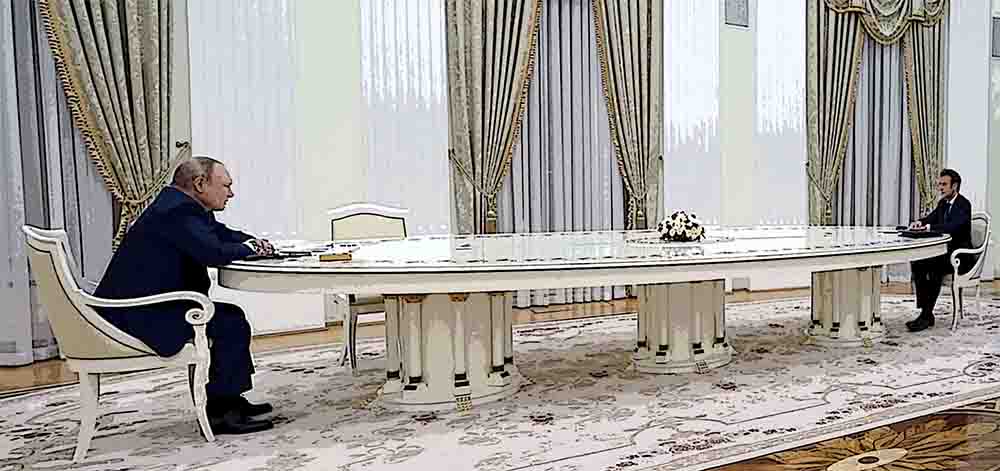
Putin vs. Macron, Source: Twitter, autor's mod.
In this respect, the French President Emmanuel Macron, whose cold reception in Moscow — on the opposite side of the longest table ever found in the Kremlin, which has already become an internet meme — did not discourage him from further frantic attempts to reach any compromise, even at the price of far-reaching concessions, outdid himself. Macron, apparently must have believed that he could be the second Chamberlain, only that this time it would somehow succeed. He wanted to go down in history at all cost, as an outstanding statesman who saved Europe from the specter of war — and it turned out rather ridiculous and degrading. Today, Putin has shown him, once again, that he does not take him, and France, very seriously. Perhaps the whole irony of the situation has registered with the President of France this time, because among the flurry of tweets of Western politicians, the Elysée Palace has just started demanding sanctions against Russia. What were they hoping for before?
An interesting question from a purely theoretical perspective is now: how far is Vladimir Putin willing to go? He probably does not know it himself yet, because it will depend on the reaction of Ukraine itself and on how staunchly — and for how long — it will be able to defend itself. It will also largely depend on how the Western countries, and above all the USA, react.
Will there be a large-scale invasion of the whole of Ukraine? Will Kiev be directly attacked? Will the Russians stop on the Dnieper line? These are questions that have yet to be answered. Meanwhile, the Americans are evacuating all their personnel from Ukraine and transferring them to Poland. The specter of Saigon and Kabul is looming again.
One thing is more than certain today: the Donetsk and Luhansk districts will be occupied by Russian forces. Already at the time of publishing this article, it is known that Vladimir Putin has instructed the armed forces to start "peace-keeping" operations in the separatist republics in Ukraine. One could even attempt to speculate further: sooner or later, the separatist republics will be annexed like Crimea. Whether it will end there, we do not know, although there are doubts here. Moscow's appetite, which Poles know all too well, is enormous.
Condemnation arrived swiftly after the Russian president's announcement. Perhaps the most nervous presidents of Latvia and Estonia reacted immediately, calling for the imposition of sanctions.
Prime Minister Morawiecki, in turn, said, among others: "The decision to recognize the self-proclaimed »republics« is a final rejection of dialogue and a gross violation of international law. It is an act of aggression against Ukraine, which must be met with an unambiguous response in the form of immediate sanctions."
President Duda wrote on Twitter: "in a situation where the president of Russia undermines the order of Europe established at the turn of the 20th and 21st centuries, there is a need for great unity and a determined attitude by NATO, the EU and the countries of our region. Only a tough stance and political defense of Ukraine can stop the aggressor. Let there be sanctions at once!"
The head of the European Commission, Ursula von der Leyen, in turn wrote that "The recognition of the two separatist territories in #Ukraine is a blatant violation of international law, the territorial integrity of Ukraine and the #Minsk agreements. The EU and its partners will react with unity, firmness and with determination in solidarity with Ukraine."
We will see how all this evolves, and how credible all these assurances are — and how effective the appeals. The great game of influence over Central and Eastern Europe has taken a completely new turn today and accelerated sharply. War is often very easy to start, but one never knows how or when it will end, or how far it will spread. Poland is, again, on the fringes of the Western world and a lot depends on the skill and diplomatic maturity of Polish ruling circles to make it out of this next confrontation as unscathed as possible.
Coming back to Beijing, it is hard to resist the impression that the aggravation of the situation in Ukraine, and the focus of the attention and operational capabilities of the Western world, and in particular of the United States, on Ukraine, could be an ideal occasion to try and roast one's own chestnuts with this fire.
Just as Russia wants to take control of Ukraine, the People's Republic of China similarly wishes to take control of Taiwan and ultimately subjugate it. It strives for this just as consistently, though more subtly, and slowly so far. Could the outbreak of the conflict in Ukraine become an invitation for China to take decisive action against Taiwan on this occasion?
I hope I am wrong on this point, because it would put the world in a state of multipolar confrontation in which there will not really be winners, and all of us would be losers — on both sides of both oceans. But I do know for sure, because it has been reported quite clearly, that President Putin has promised President Jingping not to disrupt the Games. It's just that the sports games have just ended, the new competition, much more significant for the fate of the whole world, has been in progress for a long time, and there will be no gold medal. And two are playing against one for now.



